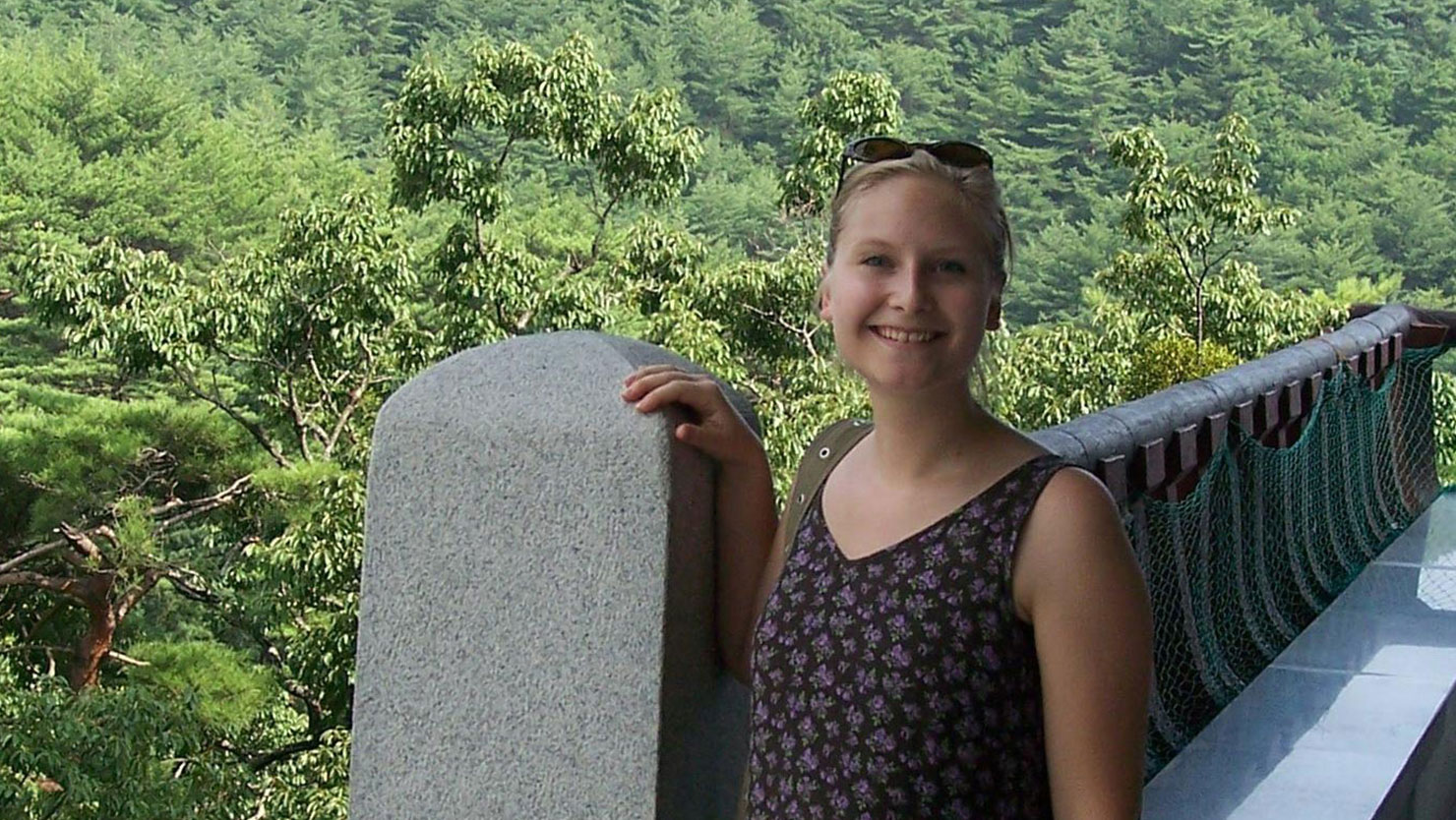Scientist Spotlight: Orianna Bretschger

Most of us have never thought about how to make more water or cleaner water or develop unique sources of energy but that’s exactly what Orianna Bretschger does at JCVI. She is working at the intersection of engineering, physics, and biology to design small machines powered by bacteria that can purify wastewater and generate electricity at the same time.
Working in alternative energy was a natural career choice for Orianna since she grew up in the desert in Arizona where water was a precious and finite commodity. She also lived in places without electricity or plumbing. One place, that holds fond memories for her, had an old-fashioned windmill that was used to pump water into an open tank for cattle.
Orianna always had an interest in science, especially astronomy, and with that interest, coupled to good teachers who always inspired her, she found her way to where she is now.
At an early age, Orianna entered the Young Astronauts program. She had been introduced to the program by the school director, who happened to be a nun, who was at one time on the short list for the “teacher in space program.” By junior high Orianna had attended two International Young Astronauts conferences, toured the Johnson and Kennedy Space Centers, and travelled to the former USSR with her mentors and another student to help build relationships with Young Kosmonauts; a trip that solidified her love of science.
In high school she expanded her science interests to physics and planetary science, and had the opportunity to present a poster at a Lunar and Planetary Science conference at the Johnson Space Center in Houston. Incidentally, her teacher for these courses was also her cross-country coach – he encouraged her to go to school at Northern Arizona University, in Flagstaff, AZ (where the “dwarf planet” Pluto was discovered) where she earned a merged degree in physics and astronomy.
After her undergraduate education, Orianna went into industry, landing a job at Raytheon Missile Systems in Tucson, Arizona. There she worked on guidance systems, supporting projects in the Electro-optical subsystems department for two years, something she considers to be a great experience. As part of her work there on the Algorithm and Analysis team she developed algorithms for the guidance systems and began the efforts to test and validate the system. As part of her job she got to fly in old military planes, collecting and analyzing flight data and system performance.
At the end of two years at Raytheon, she still had not made the decision to attend graduate school but instead headed to Authenti-Corp, a company that is involved in biometrics evaluation (e.g. facial and voice recognition devices, fingerprint and iris scanners, digital signature verification, smart cards etc.) where her primary job was working with the Department of the Army Biometrics Task Force to develop policies and procedures for biometric systems testing and implementation. She decided that government contracting was not for her, and subsequently worked various jobs for a couple of years, including bartending in her time off, to prepare for grad school.
Orianna decided on University of Southern California, where she was accepted into the Materials Science PhD program in the School of Engineering. She spent her first semester working in a Carbon Composites lab, and later met Ken Nealson in the Biology Department where she began working on microbial fuel cells (MFCs) in Ken’s laboratory. Graduate work was focused on identifying the specific genes in the organism Shewanella oneidensis MR-1 involved with electrical current production, and solid-phase manganese and iron oxide reduction. She also led the effort to characterize the power performance, fuel flexibility, and metabolic activity of several other Shewanella wild-type strains and environmental enrichments. Throughout these projects she was given the opportunity to learn and practice microbial physiology, reactor design, electrochemistry, analytical chemistry, and environmental engineering. She graduated in the summer of 2008 and then joined JCVI with Ken.
Orianna really enjoys the diversity of science at JCVI and according to her the wonderful people make for a terrific work environment. Specifically her interests are to extend the technology for sustainable wastewater treatment, energy recovery, and develop MFC systems for the study of microbial physiology. Ten years from now she hopes to be tenured faculty, and believes her work with engineered and biological systems will ultimately contribute to developing healthy and sustainable water management practices throughout the Southwest and worldwide.
Note: Adapted from the original article written by Karen Nelson, Director of JCVI’s Rockville campus.